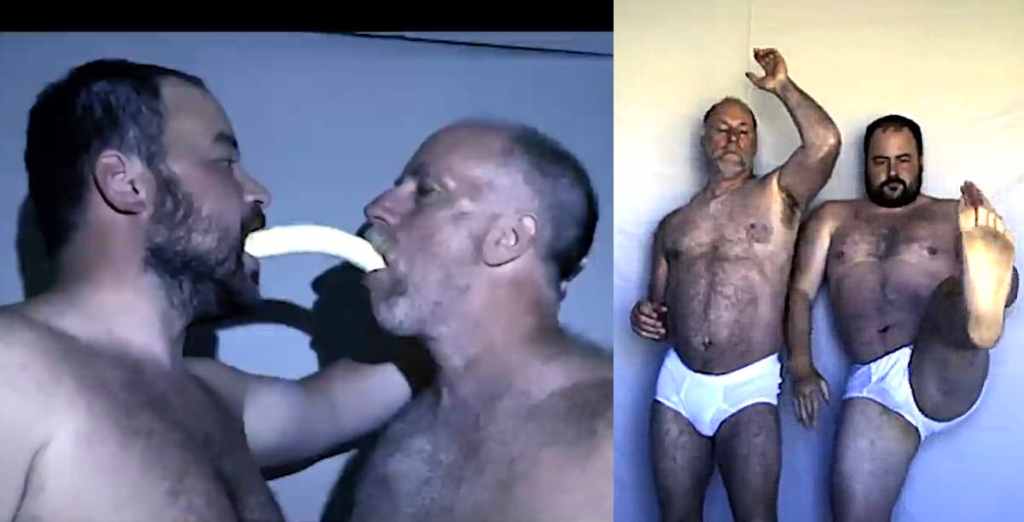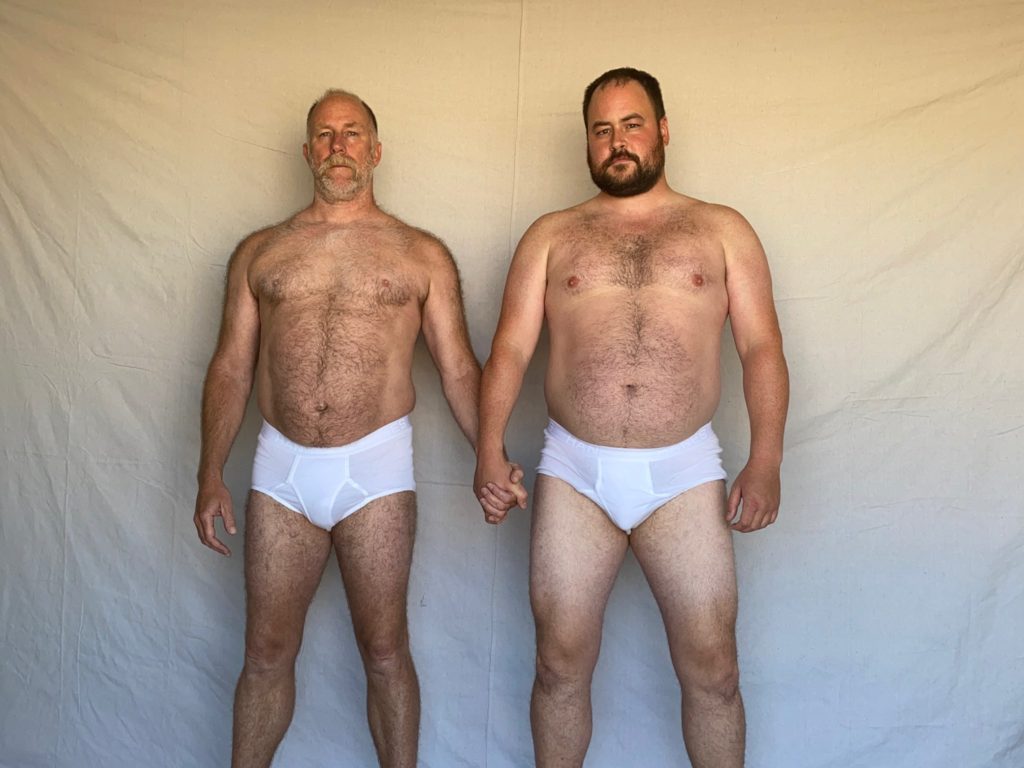
Earlier this week, we reported that Faith No More keyboardist Roddy Bottum and his partner Joey Holman announced a new music project produced in isolation. Their musical duo, dubbed MAN ON MAN (“They're gay lovers making gay music.”), has now released the first single, “Daddy”.

Bottum told Rolling Stone: “We're setting out ultimately to document this odd time in the history of the world and to address the importance of creativity and togetherness. The statement of the song and video for ‘Daddy' maybe is a celebration of love in isolation and is a love letter to the not-so-distant past of a place and time where we communed physically together with our queer community.”
Bottum and Holman are quarantining in Oxnard, California, an hour north of L.A. They told Rolling Stone that they recorded everything in the house they're staying in, and wore tights-whities in the clip to “represent a faction of our culture that isn't squeaky and manicured.”
Bottum said the video came from a place of “positivity, productivity and optimism” in the face of the virus.
Bottum made headlines back in 1993 when he came out in an interview with the late Lance Loud in The Advocate, becoming one of the first out rock musicians.
Holman was in an alt-Christian band called Cool Hand Luke more than five years ago but quit it because “ultimately I was hiding a very important part of who I was, and that was painful … there was no room to be honest about who I was, because I knew speaking up for myself would mean the end of my career.”
Faith No More announced in November 2019 that they would be reuniting in 2020 for a European tour but that has been obviously postponed due to the pandemic.
Bottum gave an interview to Kerrang earlier this year in which he talked about the band reuniting: “I think the world needs a little provocation right now. It's a kind of dark, dark place out there, and I think that bringing our craft and our musical exploration to the planet can only be a good thing. … It's kind of been a long time in the making, honestly. I think all of us were at the point collectively where we felt like what we had done five years ago in reforming, and the subsequent recording and touring of that recording [the Sol Invictus album], was an unfinished task. There were places that we didn't go, things we didn't do, and ways that we would have liked to perform but hadn't. The option to do it again was still there, but it kind of took us a while to get our head around how we wanted to do it, and what the impetus for going forward was.”
He also talked about coming out in '93: “I certainly did feel that the rock community was a tolerant place when I came out. But the rock community was not why I made that gesture – in fact, it was the least of my worries. It was more important for me to make that statement and make that gesture for the gay community and for the unrecognised people of that time. Back then, Judas Priest's Rob Halford wasn't even out of the closet. My statement was a provocative statement for the straight world in general, but more important to me was the fact that it needed to be said for the gay community, for my community. It needed to be said, and to be heard as a way of signifying gratitude and compassion for my people.”




